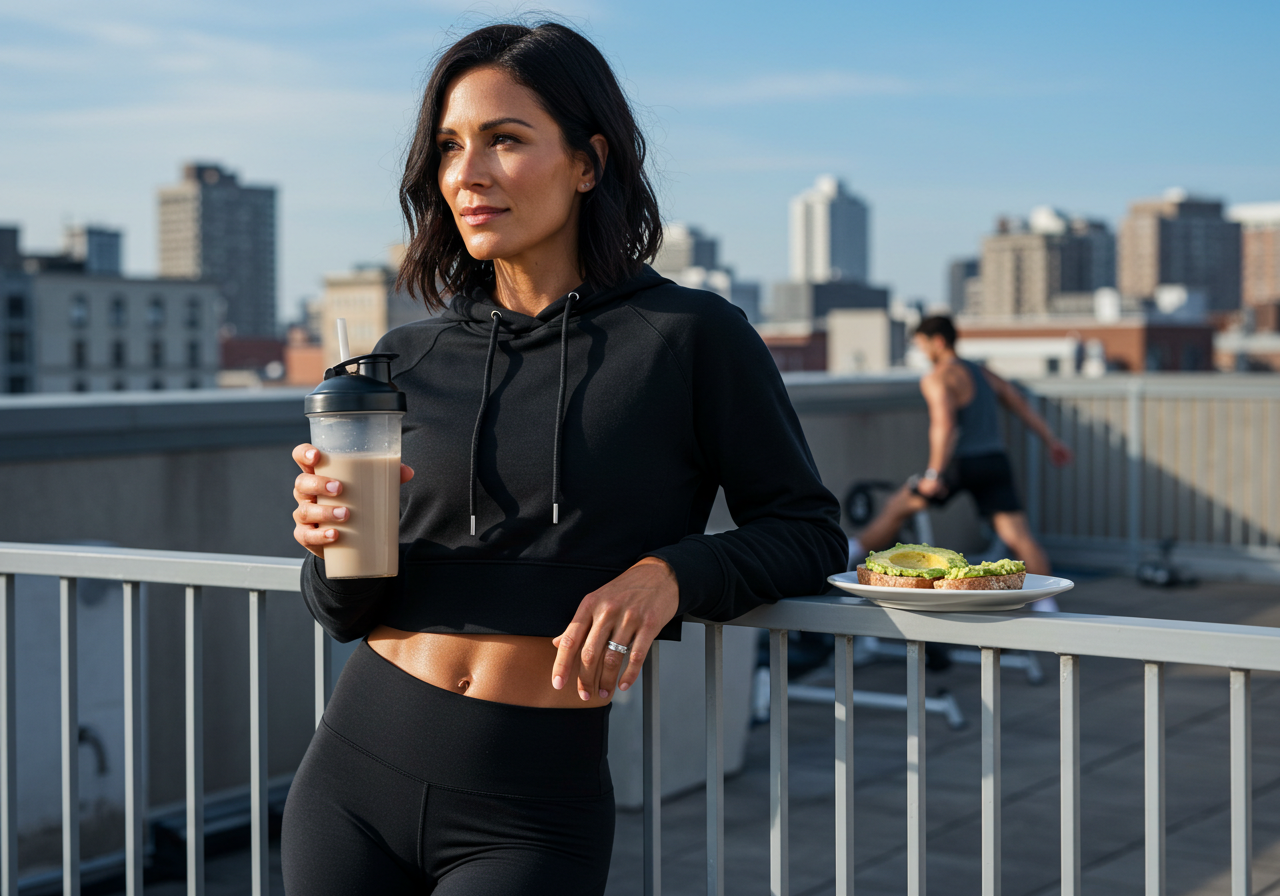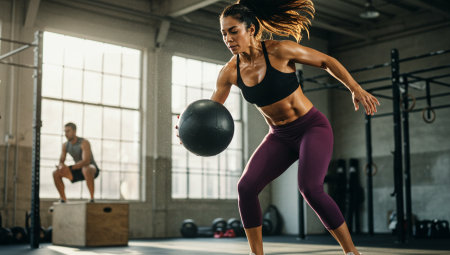What Should I Know About Post-Workout Nutrition?

Post-workout nutrition can feel like a mystery, but it doesn’t have to be. Let’s start with timing—arguably the most debated aspect. The general advice is to eat within 30 to 60 minutes after your workout. This window is when your muscles are primed to soak up nutrients, much like a parched plant eagerly drinking water after a dry spell. Get it right, and you’re setting the stage for faster recovery and better performance next time. Timing is a cornerstone of What Should I Know About Post-Workout Nutrition?, and it’s worth paying attention to.
What should you eat? The winning combo is protein and carbohydrates. Protein repairs the micro-tears in your muscles from all that lifting, running, or stretching—think of it as a repair crew fixing potholes after a storm. Carbs, on the other hand, restock your glycogen stores, the energy reserves that get depleted during exercise. Picture them as the fuel pump refilling your tank. A simple option might be a chicken wrap with veggies or a bowl of oats with a dollop of almond butter—tasty and effective.
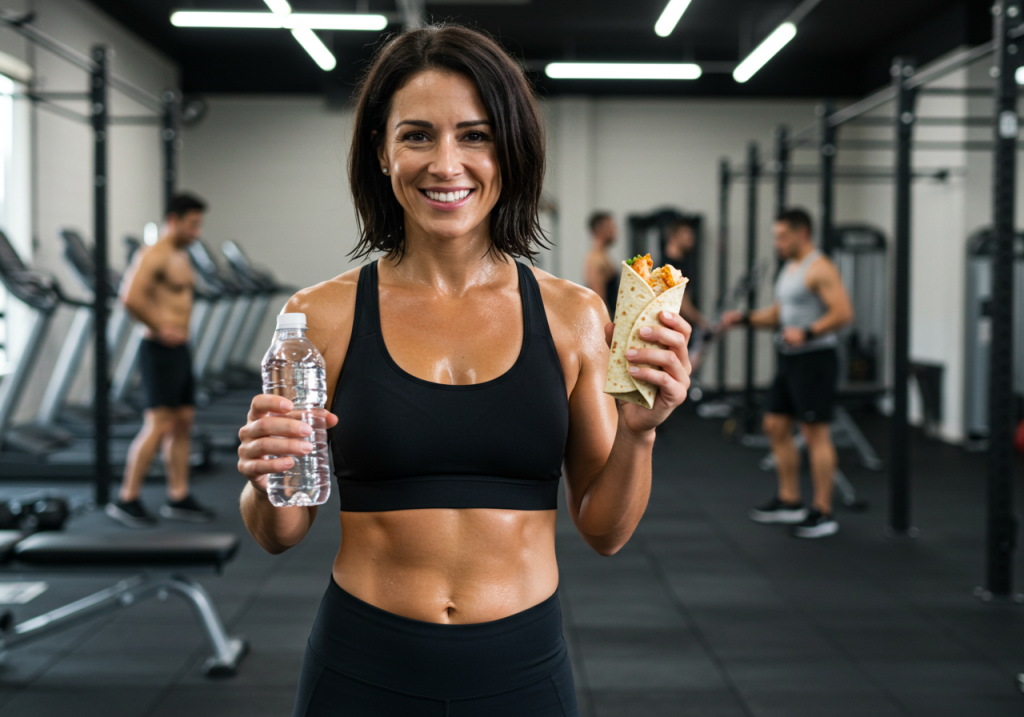
Hydration can’t be overlooked either. After sweating it out, your body is crying for fluids. Water keeps everything running smoothly, from your joints to your nutrient delivery system, like oil in a well-tuned engine. If you’ve been pushing hard, an electrolyte-rich drink (think coconut water or a sports drink) can replace what you’ve lost. So, when you ask What Should I Know About Post-Workout Nutrition?, hydration is a non-negotiable part of the equation.
The best part? There’s no universal playbook. Your body’s needs might differ from your gym buddy’s. Maybe you feel amazing after a protein shake, or perhaps a full meal like steak and potatoes hits the spot. Tune into your body’s cues—feeling energized or sluggish after eating? Adjust accordingly. Experimentation is key to cracking What Should I Know About Post-Workout Nutrition? for yourself.
Fueling Recovery: Essential Nutrients to Restore After Your Workout
Let’s dive deeper into the nutrients that power your recovery. First up is protein, the cornerstone of muscle repair. After a tough workout, your muscles are littered with micro-tears, and protein is what helps stitch them back together, stronger than before. Think of it as the scaffolding that supports a building under construction. Whether you’re sipping a protein shake, grilling some salmon, or digging into a bowl of lentils, aim for 20-30 grams of protein post-workout. This amount gives your body the raw materials it needs to kickstart recovery. It’s a fundamental answer to What Should I Know About Post-Workout Nutrition?
Carbohydrates are next in line, and they’re just as critical. During exercise, your body burns through glycogen, the stored energy in your muscles. Without a refill, you’ll feel drained for your next session. Carbs—like those found in sweet potatoes, brown rice, or even a slice of whole-grain toast—step in to top off that tank. Picture it like plugging in your phone after a long day; you’re recharging for what’s ahead. Pairing carbs with protein creates a dynamic duo that tackles both energy restoration and muscle repair in one go.
Hydration rounds out this trio of essentials. You might not realize how much fluid you lose during a workout, especially if you’re dripping with sweat. Water isn’t just a nice-to-have—it’s a must for flushing out toxins, keeping your blood flowing, and preventing that foggy, tired feeling. If you’ve been at it for over an hour or in hot conditions, electrolytes can give you an extra boost by maintaining your body’s balance. A coconut water or a homemade mix of water, lemon, and a pinch of salt can do wonders. When pondering What Should I Know About Post-Workout Nutrition?, hydration is a non-negotiable piece of the recovery puzzle.

The Science of Post-Workout Nutrition: What Your Body Really Needs
Ever wonder why gym buffs are obsessed with protein shakes? It’s not just a trend—there’s science behind it. When you exercise, your muscles endure tiny tears, and they’re practically begging for help to heal. Protein answers that call, rushing in like a team of builders to reinforce the damage. The so-called “anabolic window”—that 30-minute post-workout period—is when your body is primed to absorb protein and start repairing. Getting a dose within this timeframe can amplify muscle growth and recovery, making it a critical detail in What Should I Know About Post-Workout Nutrition?
But protein doesn’t work alone. Carbohydrates are the unsung heroes here. Your glycogen stores take a hit during exercise, leaving your energy tank on low. Quality carbs, like quinoa, oats, or even a banana, act like a fuel pump, restoring what’s been depleted. This isn’t about mindless carb-loading—it’s strategic refueling to keep your performance on point. Without this step, you might feel like you’re running on fumes during your next workout.
Hydration ties it all together. Sweat drains your body of fluids and electrolytes, and skipping the refill can leave you stiff and sore. Water keeps everything flowing—think of it as the delivery system that carries nutrients to your muscles. Adding electrolytes can enhance this process, especially after intense sessions. So, when you ask What Should I Know About Post-Workout Nutrition?, the science points to a trifecta: protein for repair, carbs for energy, and hydration for overall function.

10 Common Myths About Post-Workout Nutrition Debunked
Let’s bust some myths that might be clouding your understanding of post-workout nutrition. First up: “Carbs are bad after a workout.” Not true! Your body needs carbs to rebuild glycogen stores, just like a car needs gas after a long trip. Skip them, and you’re setting yourself up for fatigue. This is a key takeaway when exploring What Should I Know About Post-Workout Nutrition?
Another misconception? “Fat should be avoided post-workout.” Wrong! Healthy fats—like those in avocados or nuts—can reduce inflammation and support recovery. They’re not the enemy; they’re a bonus. Then there’s the idea that only hardcore athletes need to care about this stuff. Whether you’re a weekend warrior or a marathon runner, proper nutrition post-exercise benefits everyone.
Some believe more protein always means more muscle. Not quite—your body can only process so much at once (around 20-40 grams, depending on your size). Excess just gets wasted. And what about supplements replacing whole foods? While shakes are convenient, real meals offer a broader nutrient profile—think of them as the full package versus a quick fix. These clarifications are vital when answering What Should I Know About Post-Workout Nutrition?
Finally, the myth that sugary snacks are fine post-workout. Sure, they might give you a quick buzz, but the crash isn’t worth it. Stick to balanced options like fruit or whole grains for sustained energy.
From Protein Shakes to Whole Foods: Crafting the Perfect Post-Workout Meal
Protein shakes are a go-to for many—they’re fast and easy, like a pit stop for your body. But whole foods? They’re the full-service garage, delivering a richer mix of nutrients. A shake might get you protein, but a meal like grilled chicken with roasted veggies and quinoa brings vitamins, minerals, and fiber to the table. It’s about depth, not just speed, when considering What Should I Know About Post-Workout Nutrition?
Picture your ideal plate: lean protein (think fish or tofu), complex carbs (like wild rice), and a heap of colorful vegetables. It’s a feast for your body and your taste buds. This combo covers all bases—repair, refuel, and replenish—setting you up for success.

Timing is Everything: How Long Should You Wait to Eat After Exercising?
Timing your post-workout meal is like tuning a high-performance sports car—get it right, and you’re cruising; get it wrong, and you’re sputtering. Picture your body right after a workout: it’s revved up, engine still humming, and starving for fuel. Experts typically recommend waiting 30 minutes to an hour before eating. This gives your system a chance to shift gears from exercise mode to recovery mode. During this time, your muscles are like sponges, ready to soak up nutrients—protein to repair, carbs to refuel. Eating too soon might overwhelm your body, like dumping ice water on a hot engine—it could stall the process.
But here’s where it gets interesting: some argue you don’t need to wait at all, especially after intense sessions like HIIT or heavy lifting. If you’re dripping with sweat and your stomach’s growling, a quick snack within minutes can kickstart recovery. Think of it as a rapid oil change before hitting the highway again. A peanut butter sandwich on whole-grain bread, a banana with a dollop of Greek yogurt, or even a handful of trail mix can bridge the gap. These combos deliver protein and carbs fast, giving your muscles an immediate lifeline while you plan a bigger meal.
Hydration, though, doesn’t wait. It’s the lifeblood of that racing engine, and you should prioritize it the second you’re done. After all, you’ve likely lost fluids through sweat—sometimes more than you realize. A tall glass of water or an electrolyte drink (try water with a squeeze of lemon and a pinch of salt if you’re DIY-ing it) should be your first move. Forget this step, and it’s like driving without gas—you’re not going far. Dehydration can sap your energy, stiffen your joints, and delay recovery, so keep that water bottle handy.
The real trick? Listen to your body. Some days, you might feel ravenous right after a run; other times, you might need a breather before eating. Timing isn’t a one-size-fits-all rule—it’s a dance between science and intuition. Test different approaches: try eating immediately one day, then wait an hour the next. Notice how you feel—energized or bloated? Strong or sore? Finding that sweet spot can transform your recovery, and it’s a personal piece of What Should I Know About Post-Workout Nutrition? that’s worth exploring.
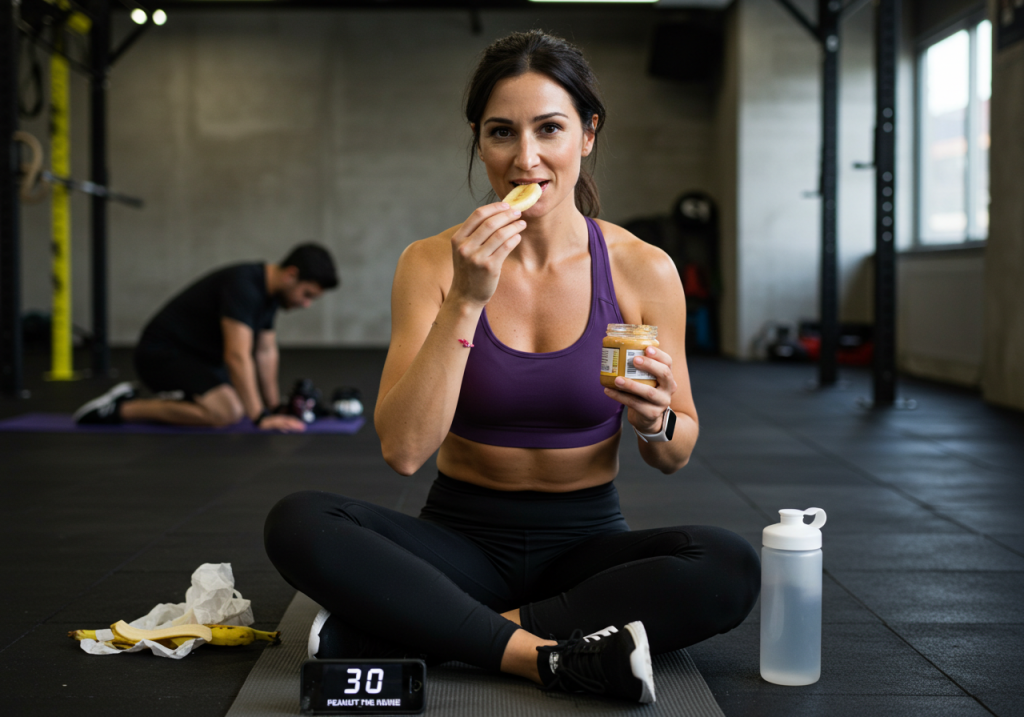
Unlocking Gains: The Role of Hydration in Post-Workout Recovery
Hydration is your secret weapon for unlocking gains, and it’s more than just chugging water. Imagine your body as a well-oiled machine—every gear, piston, and bolt needs lubrication to keep humming. After a workout, you’ve likely lost fluids through sweat, and without topping off, things start to grind. Hydration keeps your joints flexible, shuttles nutrients to your muscles, and wards off cramps that can sneak up hours later. Ever felt parched after skipping water for too long? Your muscles feel that too—dry, tight, and desperate for relief. Proper hydration post-workout can be the difference between strutting out of the gym like a champ and limping home, dragging your feet.
Let’s zoom in on recovery speed. Water doesn’t just quench thirst—it turbocharges the repair process. When you’re hydrated, your blood flows better, delivering protein and carbs to those weary muscles faster. It’s like upgrading from snail mail to express delivery. Plus, it helps flush out metabolic waste—like lactic acid—that builds up during exercise, reducing that next-day soreness. Add electrolytes into the mix (think sodium, potassium, magnesium), and you’ve got a powerhouse combo. These little VIPs at your hydration party maintain fluid balance, preventing fatigue and keeping your body’s engine purring. A sports drink, coconut water, or even a banana paired with your H2O can cover this base.
Neglect hydration, and you’re handing the villain’s role to dehydration in your recovery story. It’s sneaky—headaches, dizziness, and a sluggish vibe can creep in without warning. But get it right, and the payoff is huge. Your muscles bounce back quicker, your energy stays high, and those gains you’re chasing start to materialize. It’s wild how something as basic as drinking water can have such a profound impact, yet it’s often overlooked. So, next time you crush a workout, make hydration your first victory lap—it’s a simple habit that answers What Should I Know About Post-Workout Nutrition? with big results.
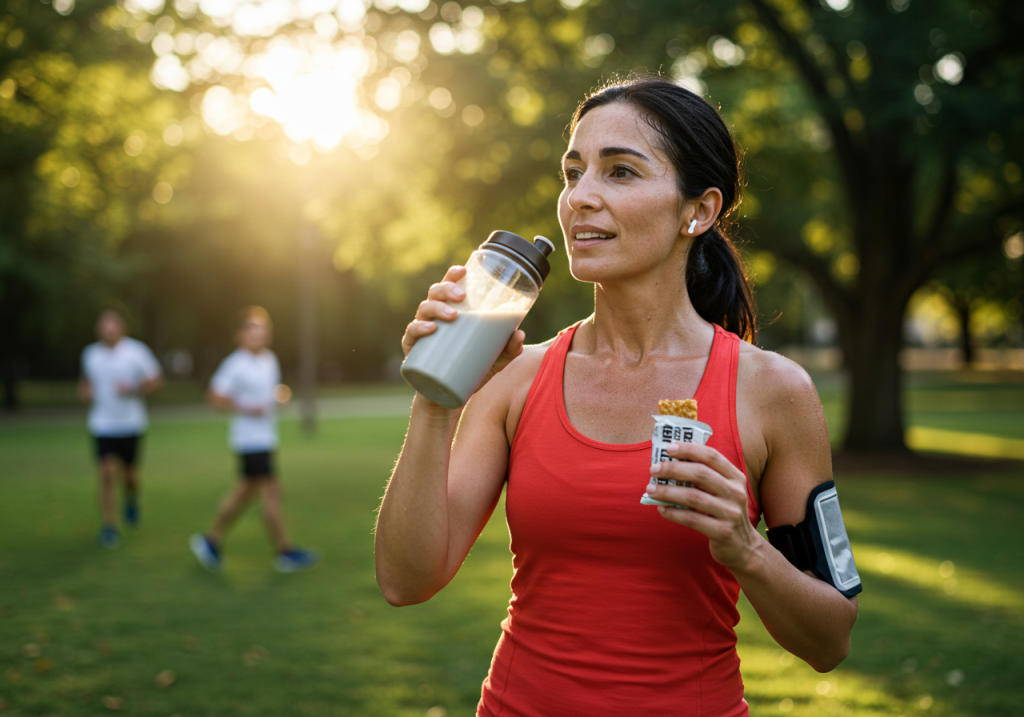
Snack Smart: Quick and Easy Post-Workout Snacks for Busy Athletes
You’ve just smashed a 5K or powered through a weight session, and your muscles are sending SOS signals—they need nutrients, stat. Instead of hitting the vending machine for a sugar bomb, go for a protein-packed smoothie. Toss a handful of frozen berries (blueberries or strawberries work great), a scoop of your favorite protein powder (vanilla or chocolate, your call), and a splash of almond milk into a blender. Blend it up, and in under five minutes, you’ve got a refreshing, nutrient-dense drink that’s as invigorating as a sunrise jog. Bonus: it’s portable—pour it into a shaker bottle and sip on the go.
Craving something heartier? Greek yogurt with a drizzle of honey is your ticket. It’s like a creamy, comforting hug for your muscles, delivering a solid dose of protein to kickstart repair while the honey adds a touch of natural sweetness for an instant mood lift. Sprinkle some chia seeds or crushed almonds on top for texture and a boost of healthy fats—it takes two minutes to prep, and you can’t beat that for convenience. Want to mix it up? Swap the honey for a few slices of fresh fruit like mango or kiwi for a tropical twist that keeps it light yet satisfying.
If you’re still hungry or need something to hold you over until dinner, try whole-grain toast topped with avocado and a pinch of sea salt. This combo is a flavor symphony—creamy fats from the avocado pair with complex carbs from the bread to refuel your tank, while the salt replaces sodium lost in sweat. Mash the avocado with a fork, spread it thick, and add a sprinkle of chili flakes or a hard-boiled egg if you’re feeling fancy. It’s a mini power meal that’s ready in moments and keeps you full without weighing you down.
For those on-the-run days—rushing from the gym to work or errands—keep it simple with a handful of mixed nuts or a quality protein bar. They’re like little energy grenades, packed with protein, healthy fats, and just enough carbs to tide you over. Stash them in your gym bag, glove compartment, or desk drawer for emergencies. Look for bars with minimal sugar and real ingredients (think nuts, seeds, and oats over candy-coated nonsense). These smart snacks fit into your busy life while fueling your athletic goals. So, when you’re pondering What Should I Know About Post-Workout Nutrition?, quick, balanced options like these keep your energy soaring without the hassle.
If you enjoyed this guide on What Should I Know About Post-Workout Nutrition?, be sure to check out more of my articles at www.soulfullwoman.com for tips to empower your fitness journey!

